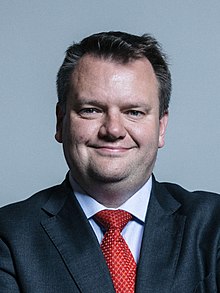Tom Tugendhat – 2018 Commons Speech on Brexit
Below is the text of the speech made by Tom Tugendhat, the Conservative MP for Tonbridge and Malling, in the House of Commons on 6 December 2018.
I am grateful for the opportunity to speak in this important debate. I pay tribute to the hon. Member for Falkirk (John Mc Nally) for his dulcet tones and helping us get through the afternoon.
We find ourselves here because of a series of events. We must remember that the day after the referendum, the campaigns disappeared. When we got to the leadership competition, many of the competitors disappeared. When we got to the election, sadly many of our seats disappeared, and we found ourselves without a majority. Despite that, we have a Prime Minister who, thank God, has shown fortitude, devotion and duty, when so many others have, sadly, disappeared.
I have plenty of criticism to make of the way these negotiations have been conducted, and I am sure I am not alone in doing so. I think we started the wrong way round. Rather than negotiating our way down, as it were, from our existing membership, we should have admitted the truth, which is that we have left the European Union—we left when the votes came in—and we should be negotiating our way up towards the relationship we want to see in the long term. Sadly, that is not what happened.
We find ourselves now looking towards a transition. After 45 years’ membership—about the same time that Elizabeth I was on the throne or the German empire existed—it is hardly surprising that the transition to a new relationship is important. We must use this opportunity to focus on not only what the interim stage looks like, but what the future looks like. That is why I would welcome much more effort going into the future agreement. It is true that the political declaration sets out some aspects of interest, and the backstop supposedly is used as a building block, but we need to see much more than either of those.
So what are we looking at today? We are looking at a stage. We are looking at—let us be frank—the only deal on the table. We are looking at a temporary, imperfect compromise, and an uncomfortable one at that—one that, were we to ever enter the backstop, splits the four freedoms of goods, capital, services and people.
The option we have is pretty simple. It is threefold: either we agree with this compromise; or we push for a second referendum, which I think is a terrible idea, as it will simply lead to more uncertainty and more indecision; or we walk away. As I represent a community—I am blessed to represent one of the most beautiful communities in the country—that, sadly, is surrounded by motorways entirely reliant on the port of Dover, there is a danger for us that those motorways will become parking lots, as many hon. Members will have heard me say when I raised this with the Transport Secretary. I am afraid that I cannot go for the referendum and I cannot go for walking away, so I am left really with only one choice. I do not say this with any joy. However, it is not our role to shirk responsibility or to avoid decisions; it is our role to take decisions. When I have excluded the impossible, I am left with only one—and that I have to say with a very heavy heart.
The backstop is not, however, as final as many have said, and here I quote from Policy Exchange’s work by Professor Verdirame, Sir Stephen Laws and Professor Ekins, about what the best endeavours obligation in the withdrawal agreement puts on the EU. They say:
“EU conduct in breach of such an obligation and indefinitely prolonging the application of the Protocol could thus amount to a material breach of the Withdrawal Agreement and the Protocol. Faced with this situation, the UK would be entitled to invoke this material breach as a ground for the suspension or termination of the Withdrawal Agreement and the Protocol.”
So there is a legal way out, and the legal way out is if the EU does not negotiate with best intent. I am confident that it will, because this is as bad for the EU as it is for us, though, frankly, it is not good for anyone.
I will end simply with a word about the referendum. It was legitimate. It did not go my way, but democracies do not always reflect the way we choose. When we get through this period, the next few years of this country’s history will be truly glorious. We are on the cusp of massive investment. We have companies sitting on cash and ready to throw it into the economy. We have a huge opportunity before us, and I look forward to our grasping it.


